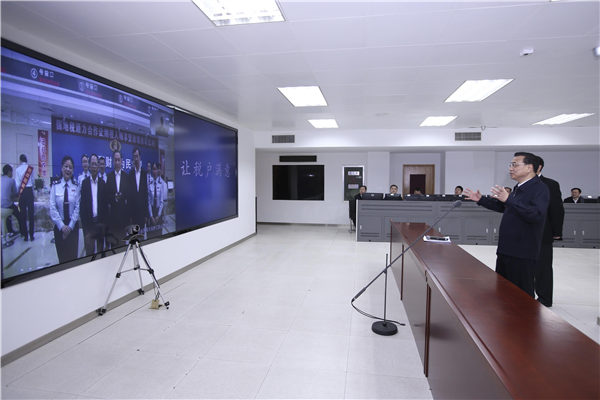
Thanks to VAT reform, Mingjia, a supply chain management company based in East China’s Jiangsu province, has developed into an intelligent logistics enterprise with annual revenue exceeding 100 million yuan ($15.1 million).
Now, it is tapping its potential in the Internet Plus transportation sector, and has set up a platform with credit as evaluation criterion, the first of its kind in Wuxi city.
Just as Premier Li Keqiang said, VAT reform is not only aimed at cutting taxes, but also conducive to the transformation and upgrading of manufacturing and the development of the service industry. In addition, it is a strong driving force for innovation.
As VAT reform was rolled out nationwide last May, labor costs, including wages and social insurance, were also included as items available for tax deduction.
Encouraged by such incentives, an equipment sales company in Changzhou city has extended its business to professional after-sale services.
As a transformation from traditional manufacturing to “manufacturing plus service”, the initiative has enabled the company to create 1,000 new jobs.
Statistics from Jiangsu province showed that VAT invoices from taxpayers in construction, real estate, finance, and services have saved 39.02 billion yuan for downstream taxpayers
Hu Genrong, a partner from Pricewaterhouse Coopers, said VAT reform has eliminated the tax gap between the secondary and tertiary sectors and within the service industry.
The reform is conducive to a fair and efficient tax environment, and could expand inter-industry trade to revitalize the economy, he said.
“It’s a real tax relief package, which encourages entrepreneurship and gives us confidence,” said Yang Haimei, one of the owners of an e-commerce service center in Tushan town in Pizhou city.
Data shows the number of newly-added taxpayers in the four major industries under VAT reform in Jiangsu in 2017 has increased 10 percent from 2016.
Since the overall implementation of the VAT, the scope of input tax deduction has been expanded, which stimulated enterprises’ R&D and innovative transformation.
A Jiangsu company, called South Permanent Magnetism, was granted tax credits amounting to 2.6 million yuan due to VAT reform.
In Jiangsu, 40.77 billion yuan of fixed asset input tax was declared last year, up 7.8 percent from the previous year, and the part in the tertiary industry was 6.54 billion yuan, an increase of 55.5 percent year-on-year.
Bloomberg said VAT reform in China has boosted the economy in the short term, and will promote the service sector and enable balanced economic development in the long run.
The overall VAT reform provides more room for entrepreneurship and innovation, and creates a tax system beneficial to small- and medium-sized enterprises.
Liu Shangxi, head of the Chinese Academy of Fiscal Sciences under the Ministry of Finance, said reform has reduced enterprises’ burdens, invigorated business, promoted employment, and thus improved people’s lives. “It is a sound economic cycle,” he said.
